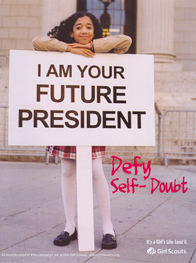A couple months ago, I read something that horrified me. Okay, horrified might be a bit much, but offended is not. I read something that offended me.
It was 6:45 am, and I was getting my workout in. I was also getting my newspaper reading in. Yeah, I know that if I can read the newspaper while working out, I’m probably not working out hard enough but usually, the newspaper just piles up until Sunday when I read a whole week’s stack at once and everything is terribly outdated by then so this past week, I decided to try reading while on the elliptical trainer that morning and put a dent in that newspaper pile.
So, I’m reading the paper when I come across a syndicated column where the columnist describes Latinos as spicy and exotic.
I don’t even know what to say to that. Other than to know I want to say something.
Several years ago, I was watching Grey’s Anatomy- seriously, my favorite show on TV and it has been for years- when Dr. Meredith Grey described Dr. Callie Torres, the Latina doctor, as so sexy that she was dirty sexy.
Perhaps it sounds innocuous to those who listen to the words with a lens (and ear) different from my own. But when I heard those words while I was watching one of my favorite television shows that happens to have such a diverse cast, I audibly gasped. What kind of message does either writer- the columnist or the script writer- mean to send with those messages? And if as writers, we want ours words to have trascendent meaning, then are we prepared for the repercussions of using stereotypes? If I had been twenty years old, a young Latina, and watching Grey’s, I could have internalized the message of “dirty sexy” as something that I should embody.
In fact, looking back at my history, part of who I have become today, part of my desire to encouage authenticity is because of the very way that people thought my ethnicity should define me when I was young. For too many people, my ethnicity had sexual and intellectual meaning, meaning that wasn’t true for me but was true for them and how they wanted to interpret and treat me. And, by my mid to late twenties, it was turning to the page to process these experiences that led me to first ponder what I intellecutally and emotionally would make of it. I had no idea that ten years later, I would be talking- often- about ethnic identity, beauty standards, body image, and identity in general because they are all at the crux of our creating authentic lives of our imaginings that are driven towards our purpose- a purpose that is about how we are meant to engage and positively alter the world.
And, yet, I am still stunned to see printed words that diminish, that label, that objectify. I am still offended to hear those words said in earnest (rather than in jest, in an attempt for irony that will serve the bigger lesson). When I asked the women of Hijas Americanas what stereotypes they most battled, all of the stereotypes were sexual and belittling in nature. When we send the message that this is what we think you are capable of, this is what we think you can do, this is what you are worth, we make it harder for someone to move past that objectifaction and into herself. And what right do we really have to label someone, limit someone, define them with our own narrow ideas?
The columnist’s casual labeling of a woman’s boyfriend as spicy and exotic when all she was being asked was whether or not a long distance made sense (why, of course it does, honey, because your boyfriend is Latino which means he is spicy and exotic) reminded me of how easy it is for people to slide into objectifying others, how casually it can become a part of our everyday lives, how easy it seeps into our media. And, though, I was unsettled after reading it. I couldn’t find words. Still almost can’t now. Looking back, I wish that I held onto that column, wish I had written that columnist privately and said, “this was hard for me to read” and explained why. Looking forward, that’s what I have to do, that’s what we all have to do: not just stop our objectification of others because of what WE think about their ethnicity, their size, their social class, their skin color, their gender, their sexuality, etc. but also stop others who objectify, let them hear what we hear when they say what they, let them understand how it hurts, limits, and diminishes in the hope that with our intervention, we make all of us stronger, more able to arrive at who we are meant to be, more able to give the world what we are meant to give.




Thank you! Subtle messages are hard to notice. We must be diligent in noticing and combating them!